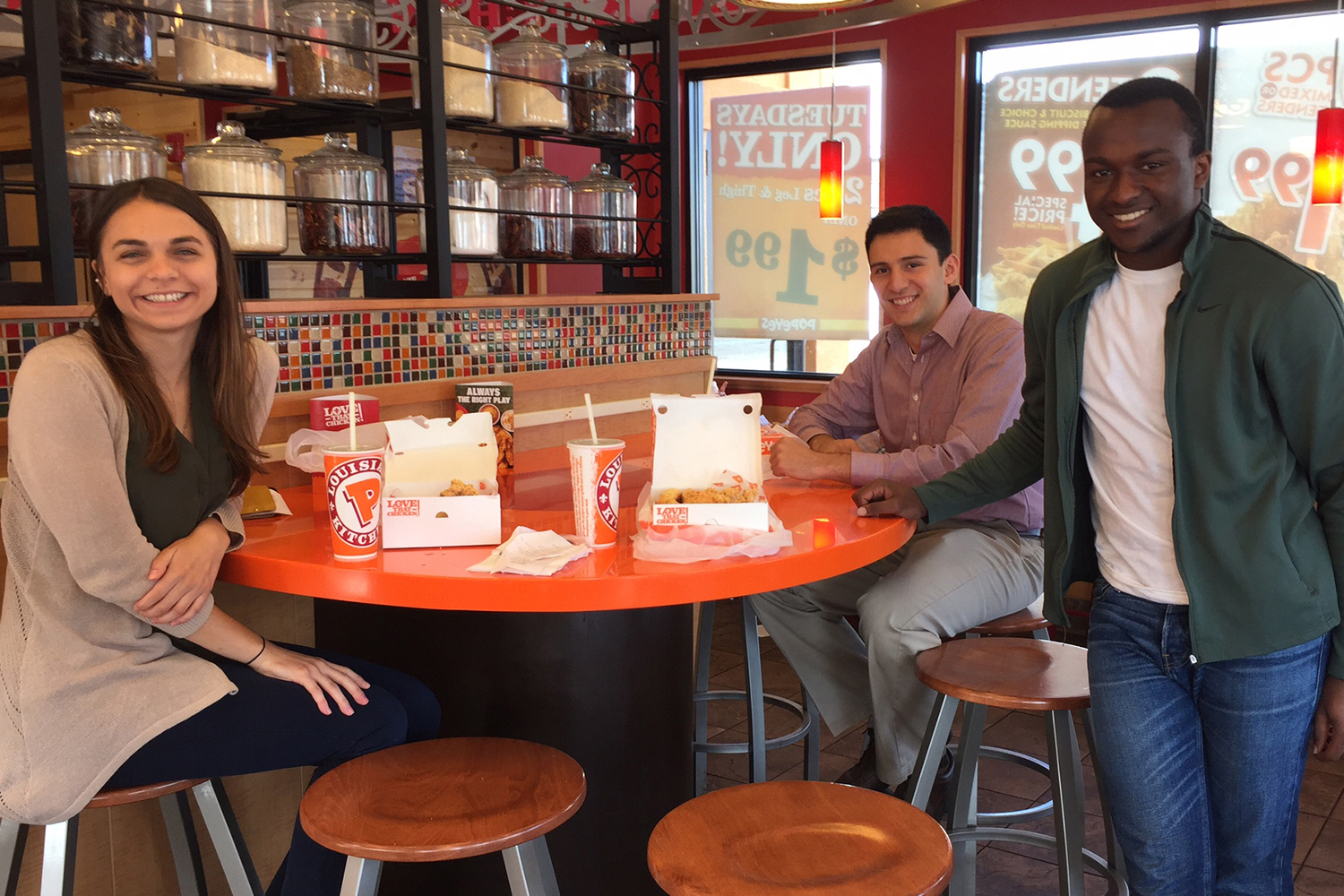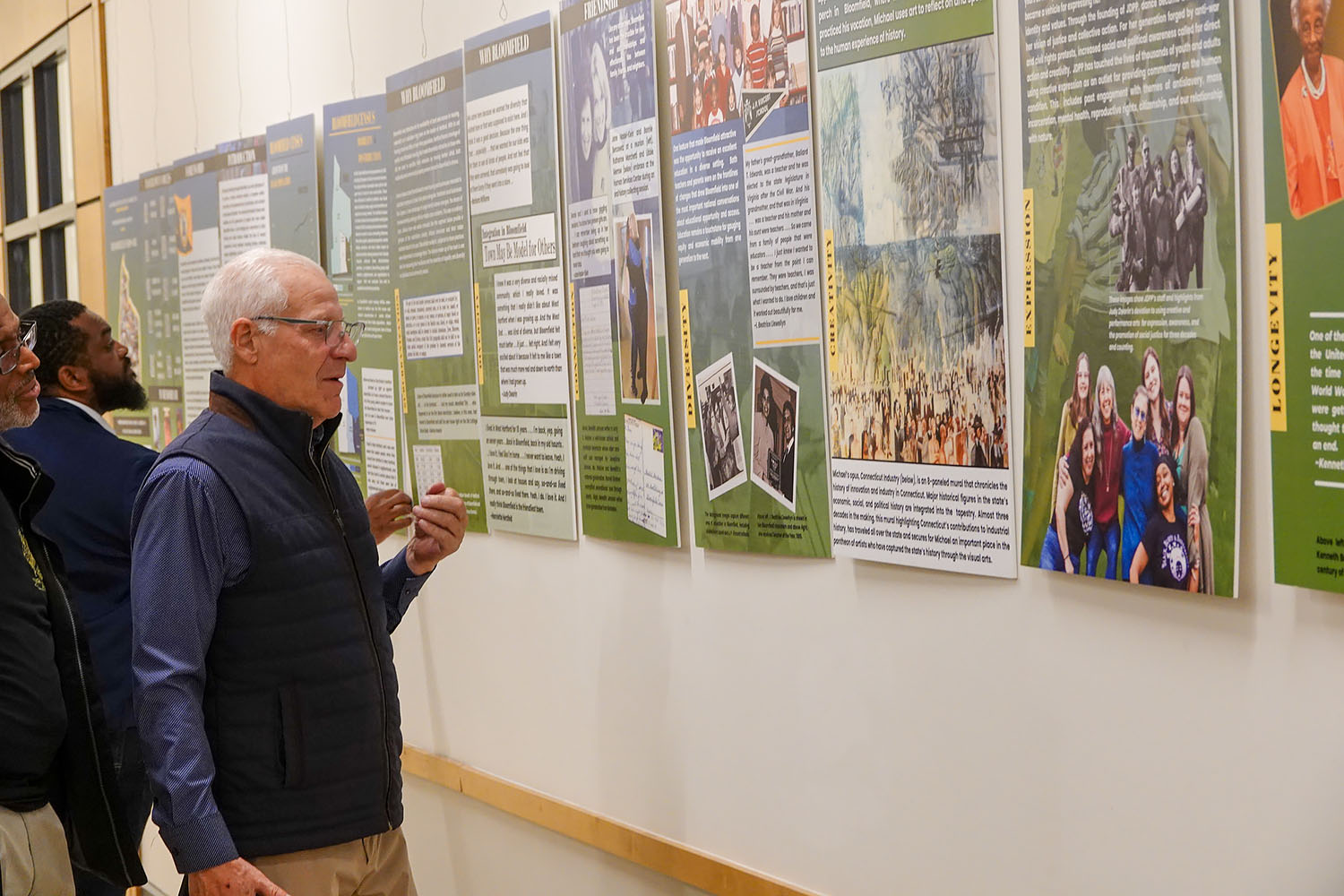A team of UConn undergraduate finance students took third place in the highly prestigious Cornell Stock Pitch Challenge in Boston, going toe-to-toe with teams from Harvard, Columbia, Duke, Notre Dame and Amherst.
“We are very proud of our students’ success in the face of extremely tough competition,” said finance professor and department head Chinmoy Ghosh. “Their success confirms what we already know, that our students are able to compete and win against anyone.”
The team—including senior Roma Romaniv and juniors Joaquin Sanchez and Stephen Mwangi—had a week to research a stock pitch for Popeyes restaurant and retail giant Coach before presenting to a team of judges in late September.
The team was coached by Chris Wilkos, executive vice president and chief investment officer of The Phoenix Companies, Inc.. An adjunct professor at UConn, Wilkos teaches undergraduate courses in valuation and portfolio management.
“Usually a stock pitch can take a month of research, so boiling down to one week sped up my learning,” Sanchez said. “Our fundamental analysis focused on researching national and global economic trends and indicators, company business models, historical performance, peer competition and sector outlook, and forecasting company guidance and initiatives.
“Afterward, we used that analysis, coupled with our model, to create a recommendation to buy both stocks relative to their current price,” he said. “Understanding these companies’ business models and future outlook was very exciting.”
Popeyes’ stock appealed to the students. From the company’s humble beginning in Louisiana, it has grown to become the world’s second largest quick-service restaurant concept, quickly spreading across the United States and establishing a presence in more than 20 countries. Both revenue and same-store sales have grown at impressive rates, and although growth has showed signs of moderating, positive catalysts remain in the stock, they told the judges.
Meanwhile, the Coach stock is undervalued, the students concluded. A ‘retail darling’ in the opening years of this decade, the company had fallen on hard times, as its distribution strategy, which put a considerable emphasis on its outlet stores, had begun to dilute the brand, making it less desirable. However, management has implemented a new strategy, which was evidenced by a return to revenue growth during the most recent fiscal year. Though more time is needed to fully assess the success of their new strategy, the UConn students believe that the company is on a track of renewed growth.
During the two days of the program the UConn students had the opportunity to learn from portfolio managers and equity analysts over dinner. The professionals stressed that investing also has a psychological element with how the market reacts.
“Getting to see other teams present gave us insight into diverse views which make up a marketplace,” Mwangi said. “In the end, there was also a great opportunity to connect with students from across the country and begin to form new, perhaps even lasting, relationships.
“The value in participating in this competition is not just for personal achievement, but also in promoting the UConn brand and displaying our ability to compete with top universities in the country,” he added.



